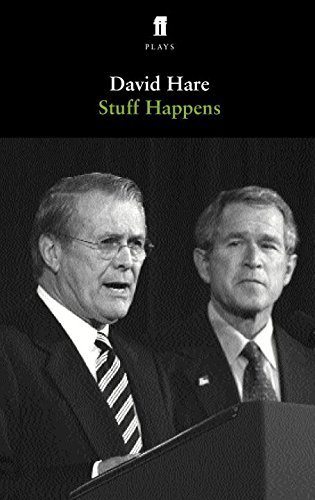What do you think?
Rate this book


Paperback Bunko
First published October 1, 2005
DINNER GUEST: How do you feel about the 100,000 innocent Iraqis who have died as a result of the invasion?But as I said, the real value of a work like this is simply to place the problem before the theater audience, to try to get a rise out of a war-weary public, to get us back to the energy level of a not-so-long-ago when millions of protesters took to the streets to try to prevent Bush's attack on Iraq. Hare expects the audience to laugh on cue at the George Bush jokes sprinkled throughout the play, but I think he's also hoping to stimulate a little engaged discourse as well.
BLAIR: I don't accept that figure. I've seen that figure and it's wrong. I couldn't sleep at night if 100,000 people had died.
DINNER GUEST: But you can sleep if 50,000 have died?